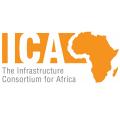ICA report shows positive trends in local and international support for African infrastructure

04/12/13
Report hailed a flagship for monitoring financial trends.
CbI collated data and produced the document.
Plans for more intense analysis of 2013 trends already under way.
The Infrastructure Consortium for Africa’s 2012 Annual Report gives substance to the view that international and domestic financing for projects is on the increase across Africa. The ICA’s Infrastructure Financing Trends in Africa report is filled with quantitative and qualitative data collected, analysed and presented by Cross-border Information (CbI). The report shows that commitments and disbursements for energy, transport, water, and information and communications technology (ICT) are rising, but much more work is needed to fill gaps in the continent’s infrastructure – an essential precondition to lifting millions more Africans out of poverty.
ICA members – who include multilateral development banks and big bilateral donors – reported commitments of $18.7bn in 2012, after a 59% fall from $29.1bn in 2010 to $11.9bn in 2011. ICA members disbursed $12.8bn – up 47% on 2011.
Total reported commitments to Africa’s infrastructure in 2012 were $89.6bn, of which $42.2bn were budget commitments by 20 African governments; total external commitments amounted to $47.4bn. China committed $13.4bn – down 10% on 2011 – while the six-member Arab Coordination Group committed $5.15bn, up by 77% on the 2011 figures. Commitments from Brazil ($530m), India ($667m) and South Korea ($677m) totalled $1.9bn in 2012 and appear to be increasing.
The report was unveiled at the ICA’s November 2013 9th Annual Conference, held in Arusha, Tanzania. Infrastructure Financing Trends in Africa was hailed as a “flagship publication”, by British co-chair, Department for International Development (DfID) senior infrastructure advisor for Africa Brian Baxendale.
His co-chair, African Development Bank (AfDB) director of energy, environment and climate change Alex Rugamba, urged ICA members to distribute the report as widely as possible. Copies may be downloaded here and are available from CbI (contact Mark Ford)
The report was delivered as part of ICA’s mandate of tracking and reporting financial commitments and disbursement for Africa’s infrastructure development. CbI’s contract was awarded following international competitive bidding, overseen by the AfDB.
The report is largely based on data received via questionnaire responses from ICA members: the governments and development agencies of all G8 countries (Canada, France, Germany, Italy, Japan, Russia, the United Kingdom and United States), the AfDB Group, Development Bank of Southern Africa (DBSA), European Commission, European Investment Bank and World Bank Group. Additional data was gathered from other international financial institutions, multilateral and regional development banks, supported by independent research of publicly available data.
Introducing the report to delegates at the 12-15 November meetings in Arusha, ICA infrastructure expert Michael Kane described the report as “breaking new ground” in several areas. For the first time, he said the ICA’s annual report contained data and information from the its newest member, DBSA, as well as budget commitments for infrastructure development from 20 African national governments. The report focuses on the Programme for Infrastructure Development in Africa (PIDA), the pan-African vision and strategic framework for the development of regional and continental infrastructure.
Recognising the important role the private sector is expected to play financing PIDA projects, Infrastructure Financing Trends in Africa also contains an innovative Private Sector Survey, examining the way private investors in Africa’s infrastructure make their investment decisions and showing their preferred destination countries, which were revealed as Kenya, South Africa and Ghana. Rugamba said the private sector survey “can only help us foster engagement with the private sector… and it can only get better”.
CbI is also preparing the ICA’s 2013 Annual Report, which is expected to go into further detail on these trends. One element involves work to widen the reach and deepen the impact of the new ICA-CbI survey of private sector participation in developing Africa infrastructure.
“We hope to help provide an even clearer picture of the public and private sector’s current and potential future role financing Africa’s infrastructure development in next year’s report,” said CbI managing director Mark Ford. “There are clearly mutually beneficial opportunities for public and private sector investors to work together to realise PIDA and other projects that will help to meet the urgent need to fill gaps in vital energy, transport, water and ICT infrastructure across Africa,” he said.
Ford added: “We are working on ways to obtain as much data and as many perceptions of the risks and opportunities in Africa’s infrastructure development from all types of investors with the aim of helping informing all stakeholders – public and private – about the journey from project conception to implementation. We are thrilled to be working on the ICA’s 2013 Annual Report and look forward to talking to as many current and potential investors in Africa’s infrastructure as possible in this process.”
For more information contact:
Mark Ford
Managing Director
Cross-border Information
E: [email protected]
T: +44 (0) 1424 721667
F: +44 (0) 1424 721721
Identify problems, mitigate risks
Reveal opportunities, minimise threats
Obtain a true picture of risks and opportunities
Improve performance, achieve results

